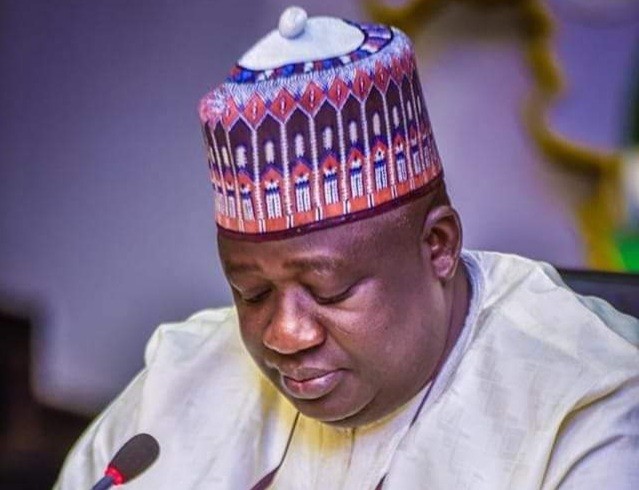
The ‘House of One’ is a religious structure being built in Berlin, Germany, whose ground-breaking event took place on the 27th of May, 2021 on the site where the ruins and relics of the first church in Berlin, St Peter’s, once stood. The project has a completion period of 12 years, and it is expected to cost at least €47.2 Million which is about $57.2 Million.
(Source: religionnews.com)
When completed, it will be the world’s first house of prayer for the three Abrahamic religions: Christianity, lslam, and Judaism; containing a church, mosque, and synagogue for Christians, Muslims and Jews respectively.
The building is dubbed the ‘Churmosqagogue’; coined from the names: ‘church’, ‘mosque’, and ‘synagogue’; reflecting the names of the places of worship of the three religions.
The idea for the House was first conceived by a Protestant pastor, Gregor Hohberg, who later invited and shared it with his Jewish and Muslim partners: Rabbi Tovia Ben-Chorin (later replaced by Rabbi Andreas Nachama) and Imam Kadir Sanci.
The three initiators began the seemingly slow process by getting to know each other as conversation partners first, and then followed by working on the modalities of raising funds for the project.
They started as colleagues, later friends, and then brothers. Thence, the project made them to focus their relationship on togetherness: spending time together, learning together and co-operating together, thereby becoming soul relatives. Listen to them:
“On our way to peace in heaven, we have the chance to create that here on earth … but that’s not to be taken for granted. You have to work at it and build a place for peace on earth.”
When completed, the House will provide equal space for Christians, Muslims and Jews to gather, pray and worship under its roof. However, the emphasis is not on the space for worship only. The House is more than than that; it is also a house of interfaith unity, understanding, peace, peaceful co-existence, and tolerance. I think these are the fundamental essence of the House.
The House of One is not the first attempt at housing the Abrahamic faiths together. There are: the House of Religions in Bern, Switzerland, opened in 2014; the Tri-Faith Initiative in Omaha, Nebraska, in 2020. The Temple of All Religions in Kazan, Russia and the Abrahamic Family House in Abu Dhabi, UAE, are both currently under construction. There are other similar places in Haifa, Vienna, etc.
For me, the construction of the House of One is, by extension, the institutionalization of interfaith ecumenism amongst Christianity, Islam and Judaism. Its idea and concept are also worthy of given a trial as a test-case for interfaith unity, tolerance and peace-building in Nigeria between the two major relgions: Christianity and Islam.
The recurring ethno-religious violent conflicts being witnessed in Nigeria have adversely affected our peaceful co-existence and political thoughts and practice. Almost everything is viewed and considered within ethno-religious prism.
Therefore, constructing a project simliar to the House of One for both Christians and Muslims will help to build bridges of tolerance, peace, peaceful co-existence, friendship, brotherliness and unity among the faithfuls of the two religions. It will also re-align our psyche to appreciate politics devoid of religious colouration and consideration.
Happily, Kaduna State has a platform (not physical project/structure) that is similar, in concept, to the House of One which was a flagship initiative of Kaduna State Peace Commission. It is called the ‘House of Kaduna Family’; and was inaugurated on Thursday, 03/09/2020, by Governor Nasir Ahmad El-Rufa’i, comprising 22 senior Christian and Muslim leaders. The platform was set up to:
First, enable the religious leaders to dialogue, interact and assume collective responsibility for propagating messages that will assist their faithfuls to live up to the highest ideals expected of their religions as peaceful and law-abiding citizens.
Second, restore Christian and Muslim values, compassion, empathy and understanding.
Third, cultivate common grounds of understanding between both faiths.
Fourth, counter extremism and the incursion of personal and political interests into religious affairs.
Fifth, encourage interfaith dialogue, cooperation and building positive relationships.
Sixth, provide technical advisory support to the State Government on matters related to interfaith harmony in the State.
The symbolism and significance of a platform such as the House of Kaduna Family cannot be over-emphasized, especially given the ethno-religious volatile nature of the State.
If building a structure in Nigeria like the House of One is not immediately or readily attainable, we can start with periodic interfaith prayer sessions in neutral places. The Peace Commission tried this once in the State sometime in June, 2021. This should be sustained in the meantime.
Can we replicate a project/structure similar to the House of One for Christianity and Islam in Nigeria? Is it possible for Christians and Muslims to have a common or joint place of worship? Will adherents of both religions accept and use such structure? Will religionization of politics or politicization of religion allow these to be achieved?
I have no answers. But, time will tell.



